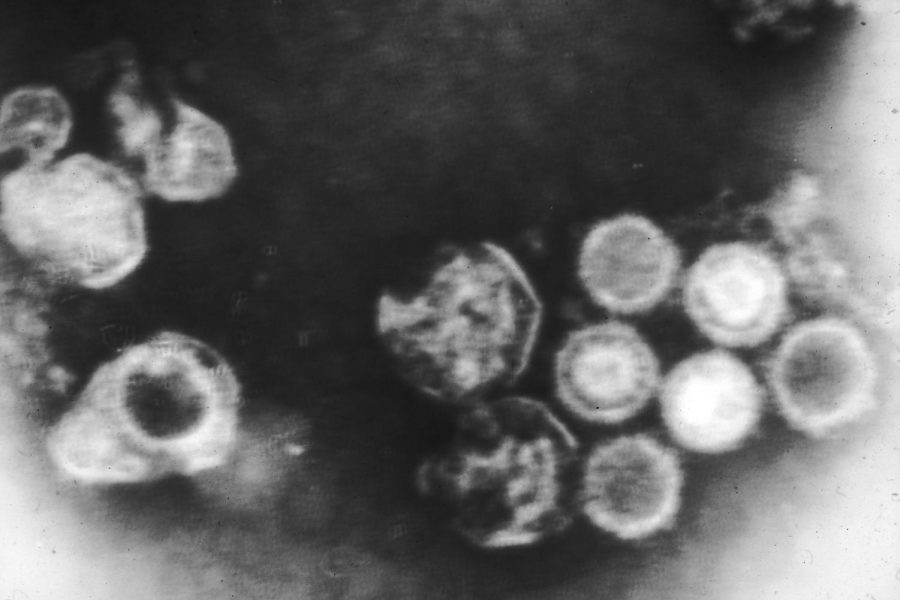Outbreak: Mono
Photo labeled for reuse by Wikimedia Commons
Adults who have previously been exposed to the Epstein-Barr virus, even without getting mono, can build enough antibodies to become immune to mono according to Mayo Clinic. Pictured: the Epstein-Barr virus, under a microscope.
The weeks approaching November 1 are always stressful for seniors. The momentous due date for most early college applications looms overhead while the students also must navigate their ever demanding academic lives. Sickness never helps, and while the start of flu season poses a threat, another illness has been much more damaging to the Class of 2020: mono.
Mono, officially known as Infectious Mononucleosis, is a contagious disease that spreads through saliva. Mono can occur when someone gets the Epstein-Barr virus, or similar viruses, that affect saliva.
The senior class had upwards of 12 confirmed cases of mono in the past week, that number seemingly increasing.
Mono is most commonly transmitted by sharing food and drinks, sharing utensils and dishes, sneezing, and kissing — hence the nickname “the Kissing Disease.”
Symptoms of mono include extreme fatigue, sore throat, head and body aches, swollen lymph nodes, and rashes according to Mayo Clinic.
An anonymous senior shared, “I’ve never been so sick in my life, and now I’m behind in all my classes because I missed so much school. I’m never touching someone else’s Starbucks again.”
Mono incubates for four to six weeks without noticeable symptoms; then, symptoms typically clear in two to four weeks. Even after getting over mono, the Epstein-Barr virus can linger in saliva for several months.
The United States Center for Disease Control and Prevention (CDC) recommends that people with mono steer clear of contact sports until they are sure they have recovered fully. Mono can cause the spleen to swell, so intense pressure or force on the spleen while in that state can potentially lead to more long-term difficulties such as spleen-rupturing.
Rest, hydration, and over-the-counter medication can provide relief to those with mono, according to the CDC.

Amy Carlyle is a senior and Editor-in-Chief of The Tower. She came to Bishop’s as a sixth grader and joined the staff at the start of her freshman year....







alex cotton • Nov 5, 2019 at 3:01 PM
this is such a good and well-written article. It’s so interesting! 🙂